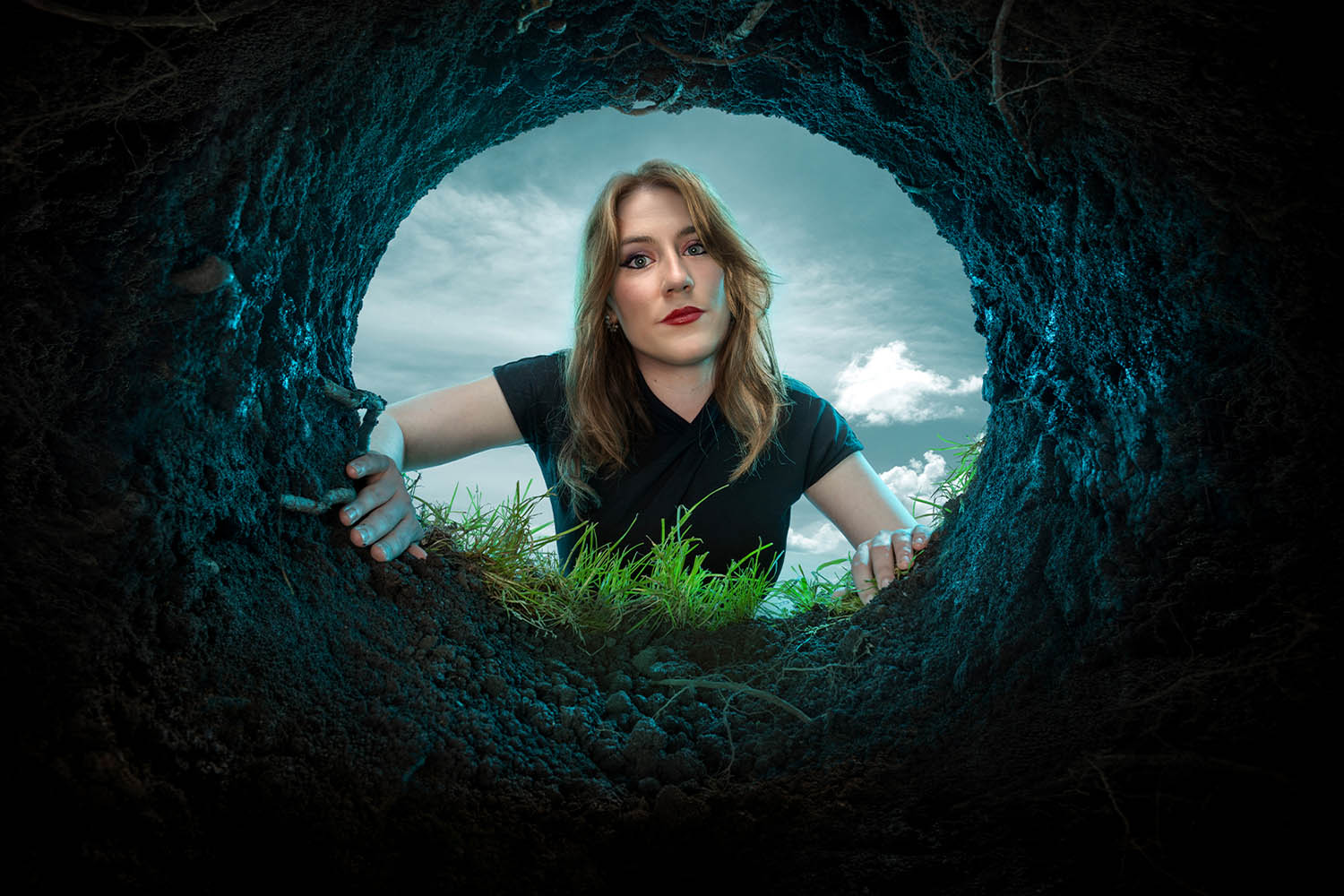Marianna Spring is doing her admirably calm thing again, coolly investigating how the virtual world impacts on the real one (and whether those two worlds can be separated, these days). As the BBC’s social media investigations correspondent, she’s made some of Radio 4’s most compelling audio over the past few years. Aside from her documentaries (try Why Do You Hate Me? and Death By Conspiracy), she appears on the BBC’s weekly Americast podcast and makes Panorama programmes.
Some of her work has stayed with me long after I’ve heard it, particularly Disaster Trolls, where she talked to Richard D Hall, who “believed” two of the victims of the Manchester Arena bombing were actors and hounded them terribly. Spring confronted Hall on the programme. In a later court case, he was found guilty of harassment.
Spring is not afraid to name conspiracists, trolls and other bad influence(r)s in her programmes. And in her returning series, Marianna in Conspiracyland 2, she makes a convincing case against Kate Shemirani, the mother of Paloma, who died of non-Hodgkin lymphoma in 2024. It takes a while to get to Shemirani, however. The first couple of episodes are about Paloma, a sweet and hard-working young woman who grew up in Sussex and studied at Cambridge. We hear from Ander, an ex-boyfriend, close friend Chantelle and, after a while, Paloma’s brothers, Gabriel and Sebastian.
Unlike her siblings, Paloma was conciliatory towards her mother, if a little wary. At one point, she tried to spend a nice Christmas at her mum’s house, but ended up texting Ander, saying she was being abusive. Shemirani had cancer herself once and believed that she’d beaten it through non-medical means. She put pressure on Paloma to refuse chemotherapy, even though doctors had advised she would have had an 80% chance of survival if she’d agreed. Paloma did not have chemotherapy.
Gradually, Spring reveals that Shemirani is more than just a weird mum. She’s a known conspiracy theorist and anti-vaccine campaigner, an ex-nurse (now struck off) whose claims about medicine became so outrageous that she was banned from what was then Twitter, as well as Facebook and other social media sites. That is, until recently, when Elon Musk’s X welcomed her back. Shemirani is now claiming doctors murdered Paloma. Spring: “The BBC has not seen evidence to support this.”
As the series continues, it gradually expands its remit to other reprehensible anti-medicine influencers, such as, you know, the US health secretary, Robert F Kennedy Jr, who at one point had been advising US citizens not to get vaccinated against measles. Our new Donald Trump-Musk world “makes it much easier for other people to peddle false views”, says a doctor.
Spring is not afraid to name conspiracists, trolls and other bad influence(r)s in her programmes
Spring is not afraid to name conspiracists, trolls and other bad influence(r)s in her programmes
“The normalisation of misinformation undermines the social cohesion we all rely on,” says Spring at the end of the series. “Not just when we’re ill, but throughout our lives.” She finally brings it back to Paloma, with Chantelle talking movingly about her friend who died far too young. You wonder if the bullish Shemirani has any regrets. Paloma was her only daughter.
Here are some other mothers, albeit of the cockle-warming kind. In Radio 4’s 6.30pm comedy slot we find Your Mum, a warm and funny new show where standup Laura Smyth invites two other comedians to talk about their mothers and a little bit about their own parenting. Smyth is great – witty without being overbearing, with an excellent chuckle. About her own mum: “My mum never stopped, but when she did sit down, she always made the point of telling you she’s just sat down.”
For this first episode, Janine Harouni and Russell Kane joined Smyth. Both were great, though in these shows there can be the sense that comedians are giving us little bits of recycled material, rather than anything new. Kane took it well when he was teased by both Smyth and Harouni at the start for saying “we had a C-section” (it was his wife who had one).
He proved surprisingly revelatory when it came to his family, explaining that his maternal grandmother was “a proper alcoholic: we’re talking 7am double vodka, in bed in your dressing gown by 4pm”, so the granny role was taken up by his great-grandmother.
Newsletters
Choose the newsletters you want to receive
View more
For information about how The Observer protects your data, read our Privacy Policy
I liked how the show contacted both his and Harouni’s mum, and asked them for details about what it was like bringing them up. “I think when he started nursery school we were both relieved,” said Kane’s mum, to much laughter.
In Live, Laugh, Luke, a new show that’s gone straight into the podcast Top 10, social media celebrity Luke Hamnett chats with his mum, Janet, about not very much at all. (Luke on the Baftas: “I left early and that was it, really.”) Just 30 minutes long, the show is packed with pretty obvious single entendres, such as Luke inviting Janet to “touch my balls” (it’s a tombola with questions inside the balls). Though clearly lovely, Janet is not a born storyteller, nor does she have many stories, so Luke jumps all over her anecdotes, ramping things up with penis gags. The show is quick and well edited, and its heart is in the right place, but the humour is just campery, rather than actual jokes.
Marianna in Conspiracyland 2 BBC Radio 4/BBC Sounds
Your Mum BBC Radio 4
Live, Laugh, Luke Colour It in Studios
Photograph by BBC

